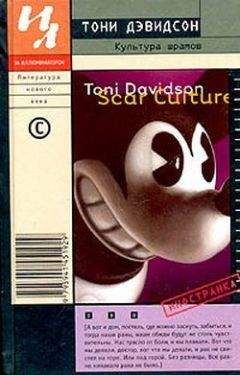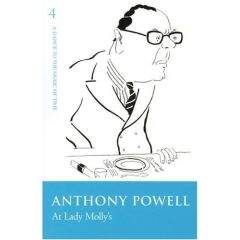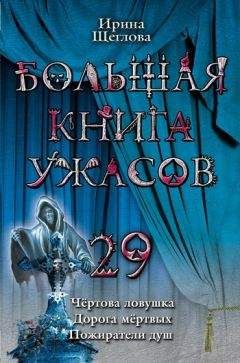Anthony Powell - A Buyers Market
I found it impossible to guess whether he was getting married because he was in love, because he hoped by taking this step to find a more settled life, or because he was curious to experiment with a new set of circumstances. The absurdity of supposing that exact reasons for marriage can ever be assigned had not then struck me; perhaps excusably, since it is a subject regarding which everyone considers, at least where friends are concerned, the assumption of categorical knowledge to be an inalienable right. Peggy Stepney herself looked pleased enough, though the formality of her style was calculated to hide outward responses. There had been an incident — hardly that — while we had been talking before luncheon. She had let her hand rest on a table in such a way that it lay, at least putatively, in Stringham’s direction. He had placed his own hand over hers, upon which she had jerked her fingers away, almost angrily, and begun to powder her face. Stringham had shown absolutely no sign of noticing this gesture. His first movement had been made, so it had appeared, almost automatically, not even very specifically as a mark of affection. It was possible that some minor quarrel had just taken place; that she was teasing him; that the action had no meaning at all. Thinking of the difficulties inherent in his situation, I began to turn over once more the meeting with Jean, and asked Stringham if he knew that Peter Templer’s sister was one of the guests at Stourwater.
“Didn’t even know he had a sister — of course, yes, I remember now — he had two at least. One of them, like my own, was always getting divorced.”
“This is the younger one. She is called Mrs. Duport.”
“What, Baby’s friend?”
He did not show the least interest. It was inexplicable to me that he had apparently noticed her scarcely at all; for, although Widmerpool’s love for Barbara had seemed an outrageous presumption, Stringham’s indifference to Jean was, in the opposite direction, almost equally disconcerting. My own feelings for her might still be uncertain, but his attitude was not of indecision so much as complete unawareness. However, the thought of Mrs. Wentworth evidently raised other questions in his mind.
“What sort of progress is Theodoric making with Baby?” he asked.
Truscott smiled, making a deprecatory movement with his finger to indicate that the matter was better undiscussed: at least while we remained on the terrace.
“Not very well, I think,” Stringham said. “It will be Bijou Ardglass, after all. I’ll have a bet on it.”
“Did the Chief strike you as being a bit off colour at luncheon, Charles?” Truscott asked, ignoring these suppositions.
He spoke casually, though I had the impression he might be more anxious about Sir Magnus’s state of temper than he wished outwardly to admit.
“I heard him say once that it took all sorts to make a world,” said Stringham. “He ought to write some of his aphorisms down so that they are not forgotten. Would it be an occasion for the dungeons?”
He made this last remark in that very level voice of his that I recognised, as of old, he was accustomed to employ when intending to convey covert meaning to some apparently simple statement or question. Truscott pouted, and lowered his head in rather arch reproof. I saw that he was amused about some joke shared in secret between them and I knew that I had judged correctly in suspecting latent implication in what Stringham had said.
“Baby doesn’t like it.”
“Who cares what Baby likes?”
“The Chief is never unwilling,” Truscott said, still smiling. “It certainly might cheer him up. You ask him, Charles.”
Sir Magnus was talking to Lady Huntercombe only a short distance from us. Stringham moved across the terrace towards them. As he came up, Lady Huntercombe, whose features and dress had been designed to recall Gainsborough’s Mrs. Siddons, turned, almost as if she had been expecting his arrival, and pointed with an appropriately dramatic gesture, to the keep of the castle, as if demanding some historical or architectural information. I could see Stringham repress a smile. Her words had perhaps made his inquiry easier to present. Before answering, he inclined towards Sir Magnus, and, with perhaps more deference than had been common to his manner in former days, put some question. Sir Magnus, in reply, raised his eyebrows, and — like Truscott a few minutes earlier, who had perhaps unconsciously imitated one of his employer’s mannerisms — made a deprecatory movement with his forefinger; his face at the same time taking on the very faintest suggestion of a deeper colour, as he in turn addressed himself to Lady Huntercombe, apparently requesting her opinion on the point brought to his notice by Stringham. She nodded at once in such a way as to indicate enthusiasm, the rather reckless gaiety of a great actress on holiday, one of the moods, comparatively limited in range, to which her hat and general appearance committed her. Stringham looked up and caught Truscott’s eye.
The result of the consultation was a public announcement by Truscott, as Sir Magnus’s mouthpiece, that our host, who had by then spoken a word with Prince Theodoric, would himself undertake a personally conducted tour of the castle, “including the dungeons.” This was the kind of exordium Truscott could undertake with much adroitness, striking an almost ideal mean between putting a sudden stop to conversation, and, at the same time, running no risk of being ignored by anyone in the immediate neighbourhood. No doubt most of those assembled round about had already made the inspection at least once. Some showed signs of unwillingness to repeat the performance. There was a slight stir as sightseers began to sort themselves out from the rest. The end of the matter was that about a dozen persons decided to make up the company who would undertake the tour. They were collected into one group and led indoors.
“I’ll get the torches,” said Truscott.
He went off, and Stringham returned to my side,
“What is the joke?”
“There isn’t one, really,” he said, but his voice showed that he was keeping something dark.
Truscott returned, carrying two electric torches, one of which he handed to Stringham. The party included Prince Theodoric, Lady Huntercombe, Miss Janet Walpole-Wilson, Eleanor, Rosie Manasch, and Pardoe: together with others, unknown to me. Stringham went ahead with Truscott, who acted as principal guide, supplying a conjunction of practical information and historical detail, in every way suitable to the circumstances of the tour. As we moved round, Sir Magnus watched Truscott with approval, but at first took no part himself in the exposition. I felt certain that Sir Magnus was secure in exact knowledge of the market price of every object at Stourwater: that kind of insight that men can develop without possessing any of the æsthete’s, or specialist’s cognisance of the particular category, or implication, of the valuable concerned. Barnby used to say that he knew a chartered accountant, scarcely aware even how pictures are produced, who could at the same time enter any gallery and pick out the most expensively priced work there “from Masaccio to Matisse,” simply through the mystic power of his own respect for money.
We passed through room after room, apartments of which the cumulative magnificence seemed only to enhance the earlier fancy that, at some wave of the wand — somewhat in the manner of Peer Gynt — furniture and armour, pictures and hangings, gold and silver, crystal and china, could turn easily and instantaneously into a heap of withered leaves blown about by the wind. From time to time Prince Theodoric made an appreciative comment, or Miss Walpole-Wilson interjected a minor correction of statement; although, in the latter case, it was clear that Truscott’s effective handling of the matter of sitting next to her at luncheon had greatly reduced the potential of her critical assault.
We made an end of that part of the interior of the castle to be regarded as “on show,” returning to the ground floor, where we came at length to the head of a spiral staircase, leading down to subterranean depths. Here Sir Magnus was handed one of the torches by Truscott, and from this point he took over the role of showman. There was a slight pause. I saw Stringham and Truscott exchange a look.
“We are now descending to the dungeons,” said Sir Magnus, his voice trembling slightly. “I sometimes think that is where we should put the girls who don’t behave.”
He made this little speech with an air almost of discomfort. A general titter rippled across the surface of the party, and there was a further pause, as of expectancy, perhaps on account of an involuntary curiosity to learn whether he would put this decidedly threatening surmise to practical effect. Truscott smiled gently, rather like a governess, or nanny, of wide experience who knows only too well that “boys will be boys.” I could see from Stringham’s face that he was suppressing a tremendous burst of laughter. It struck me, at this moment, that such occasions, the enjoyment of secret laughter, remained for him the peak of pleasure, for he looked suddenly happier; more buoyant, certainly, than when he had introduced me to Peggy Stepney. What perverse refinements, verbal or otherwise, were actually implied by Sir Magnus’s words could only be guessed. It seemed that this remark, as an assertion of opinion, had always to be uttered at this point in the itinerary, and that its unfailing regularity was considered by his secretaries — if Stringham and Truscott could be so called — as an enormous hidden joke.
There was also the point to be remembered that Baby Wentworth, as Truscott had earlier reminded Stringham, “did not like” these visits to the dungeons. I recalled some of Barnby’s speculations regarding the supposed relationship between her and Sir Magnus. While scarcely to be supposed that, in truth, he physically incarcerated Mrs. Wentworth, or his other favourites, in the manner contemplated, frequent repetition of the words no doubt drew attention to sides of his nature that a girl often seen in his company might reasonably prefer to remain unemphasised. Sir Magnus’s eyes had, in fact, paused for a second on Rosie Manasch when he had spoken that sentence. Now they ranged quickly over the faces of Lady Huntercombe, Miss Janet Walpole-Wilson, and Eleanor: coming to rest on the ingenuous profile of a little fair girl whose name I did not know. Then, moistening his lips slightly, he beckoned us on. The party began to descend the stairs, Sir Magnus leading the way.
It so happened that at that moment my shoe-lace came unfastened. There was an oak bench by the side of the staircase, and, resting my foot on this, I stooped to retie the lace, which immediately, as is the way, re-knotted itself tightly, delaying progress for a minute or more. The heels of the women echoed on the stones as the people clattered down the stairs, and then the sound of voices grew fainter, until hum of chatter and shuffle of feet became dim, ceasing at last in the distance. As soon as the shoe-lace was tied once more, I started off quickly down the steps, beside which an iron rail had been fixed as a banister. The way was dark, and the steps cut deep, so that I had slowed up by the time I came, only a short way below, to a kind of landing. Beyond this space the stairs continued again. I had passed this stage, and had just begun on the second flight, when a voice — proceeding apparently from out of the walls of the castle — suddenly spoke my name, the sound of which echoed round me, as the footsteps of the party ahead had echoed a short time before.
“Jenkins?”
I have to admit that I was at that moment quite startled by the sound. The tone was thick and interrogative. It seemed to emerge from the surrounding ether, a voice from out of the twilight of the stair, isolated from human agency, for near approach of any speaker, up or down the steps, Would have been audible to me before he could have come as close as the sound suggested. A second later I became aware of its place of origin, but instead of relief at the simple explanation of what had at first seemed a mysterious, even terrifying, phenomenon, a yet more nameless apprehension was occasioned by the sight revealed. Just level with my head — as I returned a step or more up the stair — was a narrow barred window, or squint, through the iron grill of which, his face barely distinguishable in the shadows, peered Widmerpool.
“Where is the Chief?” he asked, in a hoarse voice.
Once in a way, for a brief instant of time, the subconscious fantasies of the mind seem to overflow, so that we make, in our waking moments, assumptions as outrageous and incredible as those thoughts and acts which provide the commonplace of dreams. Perhaps Sir Magnus’s allusion to the appropriate treatment of “girls who don’t behave,” presumably intended by him at least in a relatively jocular manner, as he had pronounced the sentence, although, it was true, his voice had sounded unnaturally serious, had, for some unaccountable reason, resulted in the conjuration of this spectre, as the image seemed to be, that took form at that moment before my eyes. It was a vision of Widmerpool, imprisoned, to all outward appearance, in an underground cell, from which only a small grating gave access to the outer world: even those wider horizons represented only by the gloom of the spiral staircase. I felt a chill at my heart in the fate that must be his, thus immured, while I racked my brain, for the same brief instant of almost unbearable anxiety, to conjecture what crime, or dereliction of duty, he must have committed to suffer such treatment at the hands of his tyrant.
I record this absurd aberration on my own part only because it had some relation to what followed, for, so soon as anything like rational thought could be brought to bear on the matter, it was clear to me that Widmerpool was merely speaking from an outer passage of the castle, constructed on a lower level than the floor from which, a short time earlier, we had approached the head of the spiral stair. He had, in fact, evidently arrived from the back entrance, or, familiar with the ground plan of the building, had come by some short cut straight to this window.
“Why are you staring like that?” he asked, irritably.
I explained as well as I could the circumstances that caused me to be found in this manner wandering about the castle alone.
“I gathered from one of the servants that a tour was in progress,” said Widmerpool. “I came over with the draft speech for the Incorporated Metals dinner. I am spending the week-end with my mother, and knew the Chief would like to see the wording as soon as possible — so that I could make a revision when one or two points had been settled. Truscott agreed when I rang up.”
“Truscott is showing the party round.”
“Of course.”
All this demonstrated clearly that arrangements initiated by Truscott at Mrs. Andriadis’s party had matured in such a manner as to graft Widmerpool firmly on to the Donners-Brebner organisation, upon the spreading branches of which he seemed to be already positively blossoming. Before I could make further inquiries, on the tip of my tongue, regarding such matters as the precise nature of his job, or the closeness of touch maintained by him with his chief in tasks like the writing of speeches, Widmerpool continued to speak in a lower and more agitated tone, pressing his face between the iron bars, as if attempting to worm his way through their narrow interstices. Now that my eyes had become accustomed to the oddness of his physical position, some of the earlier illusion of forcible confinement dissolved; and, at this later stage, he seemed merely one of those invariably power-conscious beings — a role for which his temperament certainly well suited him — who preside over guichets from which tickets are dispensed for trains or theatres.




